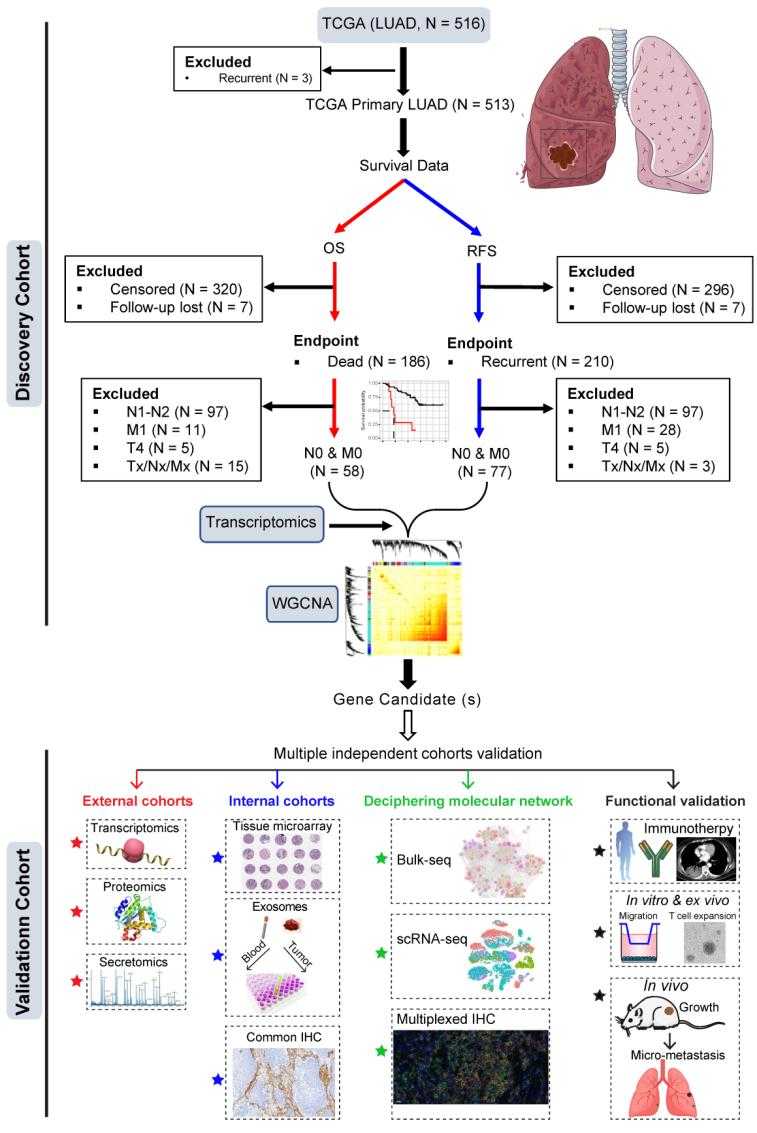Lung Cancer Tissue Exosome Research and Application
Lung cancer is a malignant tumor of the bronchial mucosa or glands of the lung. Many etiological studies have demonstrated that the primary causes of death in lung cancer patients include tumor invasion, metastasis, recurrence, and different comorbidities. Exosomes are a type of functional carrier that facilitates intercellular communication by transporting molecules of RNA and proteins. According to recent studies, exosomes in the tumor microenvironment (TME) are engaged in the regulation of tumor cell proliferation and migration, epithelial-mesenchymal transition, and angiogenesis. In order to find efficient treatment approaches to intervene in the clinical deterioration and recurrence of lung cancer, it is crucial to investigate the probable molecular mechanism of exosomes in the occurrence and development of lung cancer. Creative Biolabs has been paying attention to and deeply cultivating the communication mechanism of lung cancer tissue exosomes, hoping to help customers tap the potential of lung cancer tissue exosomes.
Lung Cancer Tissue Exosome Research and Application
In the previous studies, researchers compared the vesicle protein profiles from lung cancer tissue and plasma, respectively, and found that the correlation between the high-abundance proteins of plasma vesicles and the high-abundance proteins of lung cancer tissue vesicles was very low. This indicates that there is a possibility of false positives for high-abundance proteins associated with lung cancer in body fluid exosomes. Another group successfully purified exosomes from lung adenocarcinoma tissue through enzymatic hydrolysis, size-exclusion chromatography, and ultracentrifugation, and found that the content of exosomes in lung adenocarcinoma tissue was significantly higher than that in adjacent tumors. Subsequent combined analysis and verification found that lung adenocarcinoma tissue exosomes carry a large amount of THBS2, which can suppress the tumor immune microenvironment, thereby causing immunosuppression, immune escape, immunotherapy resistance, and tumor recurrence. These studies show that studying lung cancer tissue exosomes can better discover liquid biopsy markers for the diagnosis of lung cancer and the communication routes of key molecules in lung cancer tissue exosomes.
 Fig.1 Study design of lung adenocarcinoma tissue exosomes.1,2
Fig.1 Study design of lung adenocarcinoma tissue exosomes.1,2
Direct study of exosomes derived from lung cancer tissue will enable the study of the transport mechanism of these exosomes and the exosome communication network between different types of cells in a more realistic TME. Creative Biolabs is a professional provider of exosome technology services for researchers and enterprises. With experience in the extraction and analysis of exosomes from various tissues, we are able to provide the most efficient lung cancer tissue exosome extraction service and the subsequent exosome identification service, exosome profiling services, combined research service with body fluid exosomes, combined research services with single-cell transcriptomics and single-cell proteomics, functional research service for tissue exosomes, and possible therapeutic research service for tissue exosomes. If you want to approach the real transport function of lung cancer tissue exosomes, please contact us with your specific requirements. Our professional customer service agent and technical team will communicate with you as soon as possible.
References
-
Yang, H.; et al. Multi-scale integrative analyses identify THBS2+ cancer-associated fibroblasts as a key orchestrator promoting aggressiveness in early-stage lung adenocarcinoma. Theranostics. 2022, 12(7):3104-3130.
-
under Open Access license CC BY 4.0, without modification.
For Research Use Only. Cannot be used by patients.
Related Services:

 Fig.1 Study design of lung adenocarcinoma tissue exosomes.1,2
Fig.1 Study design of lung adenocarcinoma tissue exosomes.1,2








